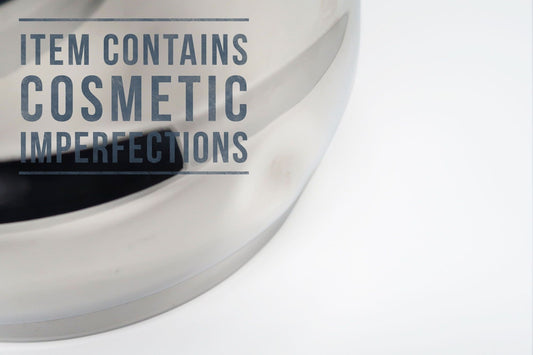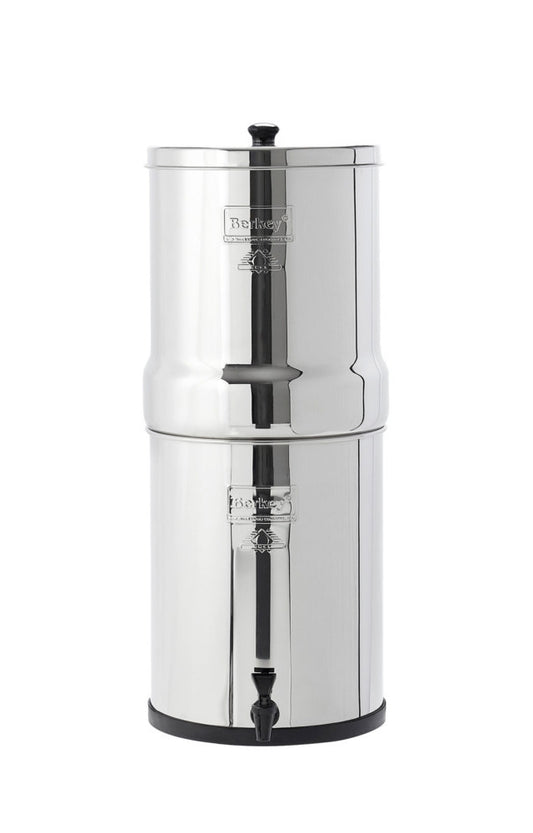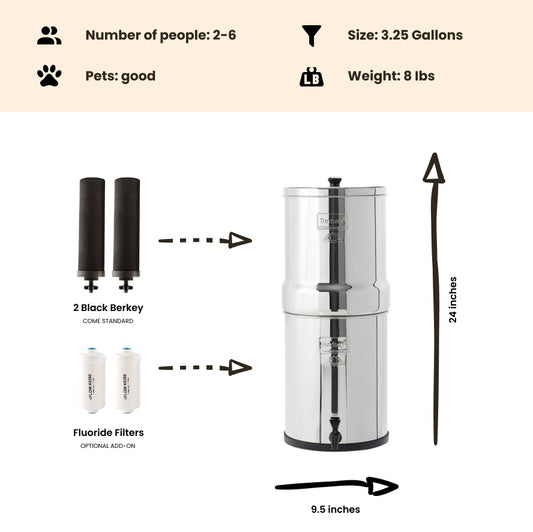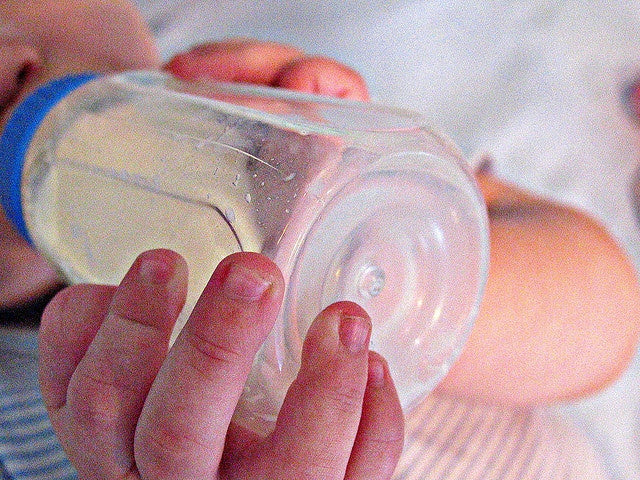
Exposure to BPA During Pregnancy Increases Risk of Heart Disease and Diabetes in Mother and Child
By Dan DeBaunShare
Bisphenol A (BPA) is a endocrine-disrupting chemical that is known to have many detrimental health affects on humans. Studies have shown that exposure to Bisphenol A (BPA), is positively associated with obesity and insulin resistance in adults over the age of 40, and that exposure to BPA while pregnant can increase the mother's risk of obesity and diabetes as she gets older. Scientific research has revealed that endocrine-disrupting chemicals such as BPA can negatively affect glucose metabolism, which can contribute to a higher incidence of obesity and/or diabetes. In one animal study, mothers exposed to BPA during gestation exhibited significant glucose intolerance together with a change in insulin sensitivity, and an increase in body weight. Studies have shown that exposure to Bisphenol A (BPA), a known endocrine disrupter, during pregnancy and early childhood poses numerous health risk to the unborn child. A recent study showed that exposure to BPA in the perinatal stages of development is likely to increase the chances of a child becoming food intolerant in later life. Now a new study published in Endocrinology, shows that exposure to BPA during pregnancy can result in oxidative damage to the baby's system that may increase the risk of the child developing heart disease or diabetes when he or she gets older. BPA is an endocrine-disrupting chemical that is commonly added to epoxy resins and plastics during the manufacture process. These contaminated materials are then used to manufacture a wide range of consumer products that are used in our daily lives such as food cans, plastic bottles (including water bottles and baby bottles) and receipts printed from cash registers. As an endocrine disruptor, BPA has the ability to mimic, block or interfere with hormones produced by our bodies. According to the US Centers for Disease Control and Prevention, it is estimated that over 96% of the US population have BPA in their bodies. The body suffers from oxidative stress when it is exposed to excessive amounts of free radicals -- chemicals that are highly reactive and which could potentially cause cellular damage as oxygen is processed by the body -- if our body is not able to neutralize these chemicals fast enough. Free radicals are typically found in environmental pollutants such as ionizing radiation, tobacco smoke, and some metals; and according to the NIH and the NCI, exposure to these environmental toxins may result in free radicals being absorbed into the body, and may also cause the body to produce more free radicals.
"This study provides the first evidence that BPA exposure during pregnancy can induce a specific type of oxidative stress known as nitrosative stress in both the mother and offspring," said lead author, Vasantha Padmanabhan, of the University of Michigan in Ann Arbor. "Oxidative stress is associated with insulin resistance and inflammation, which are risk factors for diabetes and other metabolic disorders as well as cardiovascular disease."For the study, the research team examined blood samples of 24 mothers and their infants to assess the effect of BPA exposure during pregnancy. The mothers all had blood samples taken during the first three months of their pregnancy, where BPA levels were measured. The mothers were then split into two groups according to the level of BPA in their bloodstream (high and low). Blood samples were taken from the babies umbilical cords as they were delivered, and the levels of chemical byproducts produced due to oxidative stress were measured. Analysis of the blood samples showed that mothers who were exposed to high levels of BPA as well as their babies exhibited symptoms of oxidative damage due to overexposure to free radicals derived from nitric oxide (the most prominent byproduct found in the study samples). The researchers also examined the effects that BPA had on pregnancy in non-human subjects -- mice, rats and sheep. After feeding the study animals a diet consisting of either low or high levels of BPA, the scientists took blood samples from both the mothers and their young to assess the levels of oxidative stress. The results supported the findings from the study conducted on human mother-infant pairs.
"Whether or not BPA is harmful to human health has been vigorously debated," Padmanabhan said. "These findings demonstrate that more studies like this one are needed to determine the disease risk of exposure to BPA. In the interim, these results indicate that pregnant women should minimize their exposure to BPA to safeguard their babies and themselves from oxidant injury."Learn more about the health effects of endocrine-disrupting chemicals such as BPA by downloading an information guide published by the Endocrine Society. The black berkey filters that come standard with the berkey systems have been tested and shown to remove BPA from the water. Journal References: Almudena Veiga-Lopez, Subramaniam Pennathur, Kurunthachalam Kannan, Heather B. Patisaul, Dana C. Dolinoy, Lixia Zeng, Vasantha Padmanabhan. Impact of Gestational Bisphenol A on Oxidative Stress and Free Fatty Acids: Human Association and Interspecies Animal Testing Studies. Endocrinology, 2015; en.2014-1863 DOI: 10.1210/en.2014-1863 Wang T , Li M , Chen B, et al. Urinary bisphenol A (BPA) concentration associates with obesity and insulin resistance. J Clin Endocrinol Metab. 2012;97:E223–E227. Abstract, Medline, Google Scholar Alonso-Magdalena P, Garcia-Arevalo M, Quesada I, Nadal A. Bisphenol-A treatment during pregnancy in mice: a new window of susceptibility for the development of diabetes in mothers later in life. Endocrinology. 2015 May;156(5):1659-70. doi: 10.1210/en.2014-1952. Epub 2015 Apr 1. Adam J. Spanier, Robert S. Kahn, Allen R. Kunselman, Eric W. Schaefer, Richard Hornung, Yingying Xu, Antonia M. Calafat, Bruce P. Lanphear. Bisphenol A Exposure and the Development of Wheeze and Lung Function in Children Through Age 5 Years. JAMA Pediatrics, 2014; DOI: 10.1001/jamapediatrics.2014.1397
-
Regular price From $302.00 USDRegular priceUnit price / per
-
Regular price $234.00 USDRegular priceUnit price / per
-

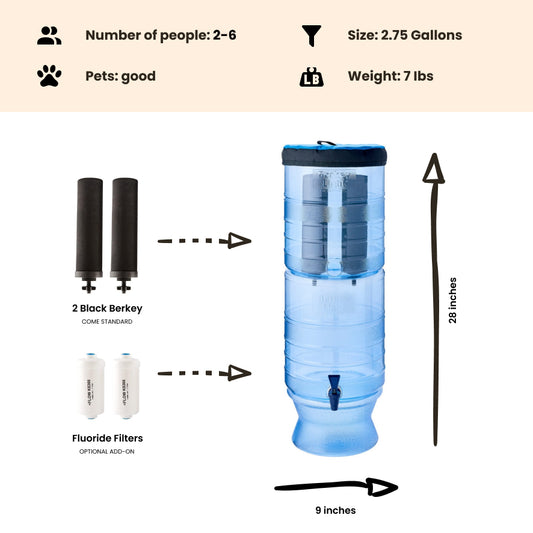 Sold outRegular price From $305.00 USDRegular priceUnit price / per
Sold outRegular price From $305.00 USDRegular priceUnit price / per -
Regular price $327.00 USDRegular priceUnit price / per
-
Regular price From $367.00 USDRegular priceUnit price / per
-
Regular price From $408.00 USDRegular priceUnit price / per
-
Regular price From $451.00 USDRegular priceUnit price / per

Dan DeBaun
Dan DeBaun is the owner and operator of Big Berkey Water Filters. Prior to Berkey, Dan was an asset manager for a major telecommunications company. He graduated from Rutgers with an undergraduate degree in industrial engineering, followed by an MBA in finance from Rutgers as well. Dan enjoys biohacking, exercising, meditation, beach life, and spending time with family and friends.
~ The Owner of Big Berkey Water Filters




